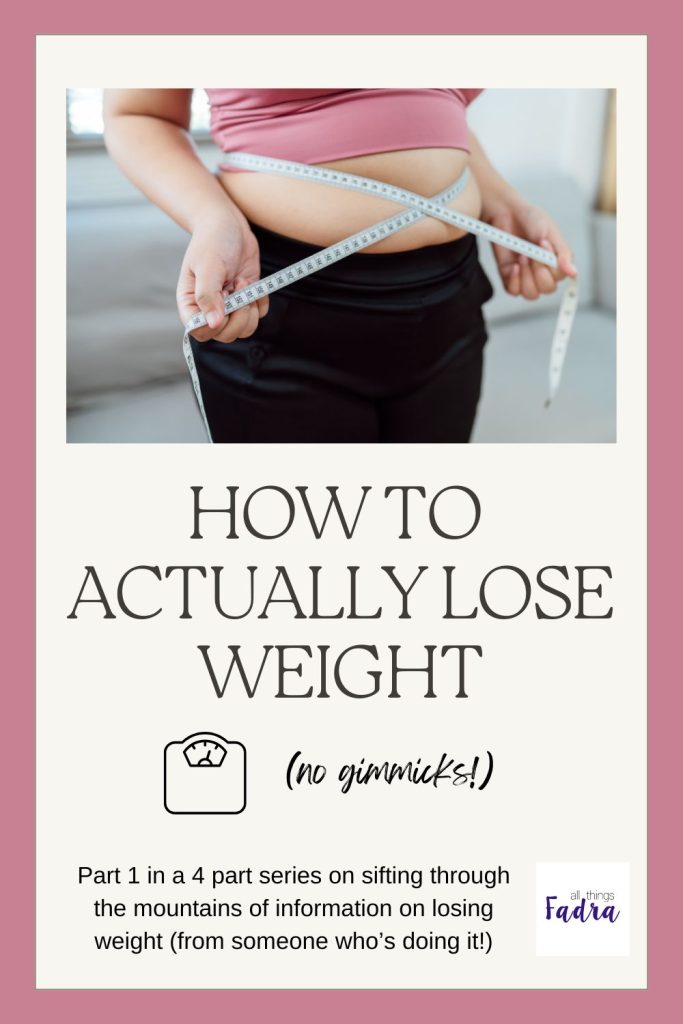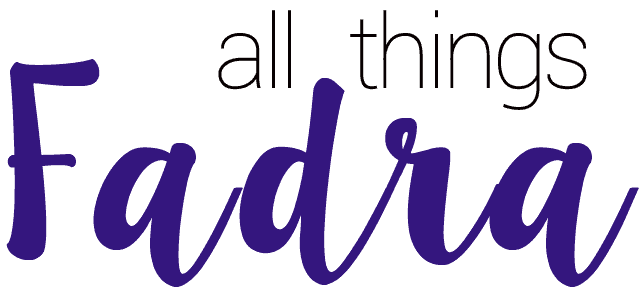If you’re here, it’s probably not because you googled “how to lose weight realistically” because I can almost guarantee there are millions of other articles out there that rank for that exact topic. If you’re here, it’s because you know me or know someone who knows me or have a good friend that sent this to you because you’re probably just as frustrated as I am at the millions of ideas swirling out there about how to effectively lose weight.
Let me start by saying I am not the model of ideal body weight or body composition. I’m petite (5’3” on a good day) and my weight always falls into the “normal” range. But my pants tell a different story. I’ve got a big butt and a severe muffin top. I carry all my weight in my middle. Same with my mother and my grandmother and probably back more generations than I can count. Genetics will never afford me a six pack and I’m okay with that but I’m still not where I want to be.


The photo on the left is me on vacation with my family at Disney in 2024. I had been tracking what I ate and working out for the better part of a year. When I had some health issues, I stopped all of that for a time and then used it as an excuse to not take care of myself. As a result, in the photo on the right taken in 2025, I’m almost 10 pounds heavier and ready to feel good again.
Knowing HOW to lose weight doesn’t necessarily equate to ACTUALLY losing weight. I know how to lose weight realistically. And I’ve done it, multiple times. Then I gain it back for reasons I’ll explain below. And then I’ll do what you probably do. Search online for things like:
“how to lose weight fast”
“easiest way to lose weight”
“losing weight over 40”
“does intermittent fasting work”
“can I still eat carbs and lose weight”
If any of those sound familiar, you’ve come to the right place. Because I’m going to share some cold hard facts that you probably don’t want to hear but will give you clarity on how to actually lose weight. Then maybe together, we can figure out how to stay motivated to follow those cold hard facts.
One quick caveat: If you already have in your mind what you do and don’t want to give up, you will eventually find an article somewhere online that satisfies your desires. I’m not telling you to ignore that. I’m just telling you if you’re already looking for an easy way out, you might not be ready to lose weight. Keep reading!
Diet vs. Exercise: Which Really Matters More?
Here’s the first thing you’re not going to want to hear: It’s your diet.
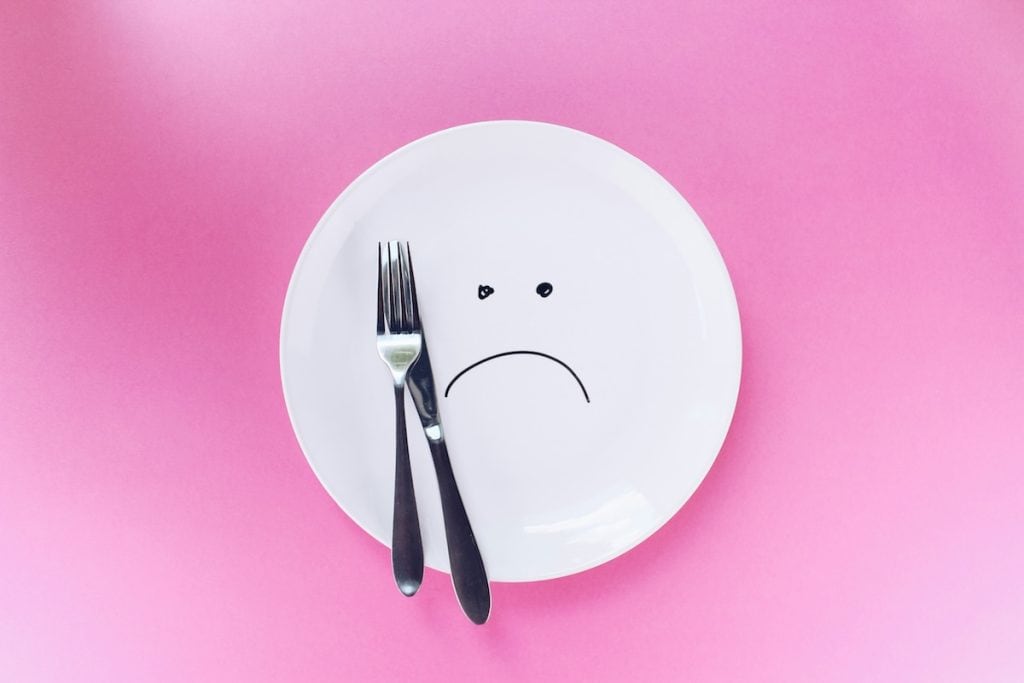
You can read just about anywhere that your diet contributes 75-90% of your ability to lose weight. I remember many years ago talking to a neighbor who was a runner. She was in a running club and ran races! I casually said to her, “Wow, that must mean you can eat anything you want!” She just laughed and said, nope, not even close.
It might also explain why you’ve committed to going to the gym 5 days a week and you’re just not losing weight the way you thought you would. If you’re sweating, you must be burning a ton of calories, right? Actually, my friend, no. Exercise is mega healthy for you and I’m not discouraging you from keeping it up. And if you’re not exercising, I’ll talk about why you need that as well.
But first, the food.
We’ll get into why diet is so important and how to make the right changes. And I promise that doesn’t mean you’ll never eat out again and you’ll have to say no to birthday cake. It doesn’t even mean you’ll have to temporarily do that. Because you want to actually enjoy life, right? I get that.
But before we throw in the less healthy stuff (not bad stuff, just less healthy), let’s chat about why your diet is so important.
Why Your Food Choices Matter
From here on out, I’m even going to use the word “diet” because it has so many negative connotations – the first one being deprivation. I’m sure you’ve heard it all.
You can only eat cabbage soup.
You can’t have any carbs.
Don’t eat before noon.
Drink green tea every day.
Trust me, don’t do the cabbage soup diet. I tried it once. I lasted a day. Some of those other options are choices and how you choose to modify the food you eat is variable and up to you.
If your body responds well to carbs, enjoy! If you’re diabetic, you’re probably going to have to reduce them. Intermittent fasting works for you? Fantastic! Not eating before noon makes you want to stab someone? Same, girl.
This is your body and your choice. Just keep in mind FOOD = FUEL. You want to fuel your body with the best stuff possible.
When I was in 6th grade, I came up with a brilliant science experiment that I was sure would win me a prize at the science fair. I bought four small plants and provided the following liquids to each plant: water, Coke, apple juice, and Kool-Aid.
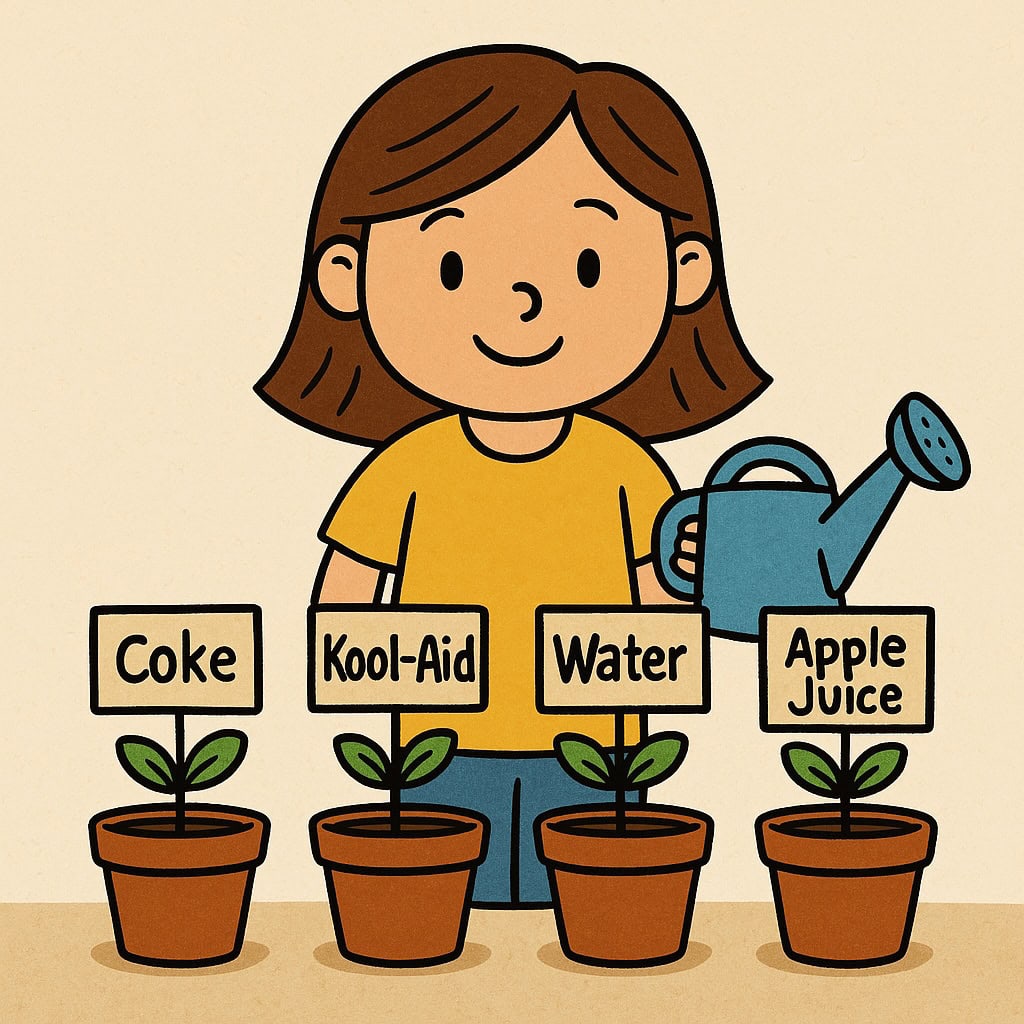
I think I thought I’d make some remarkable discovery and as you might expect, that discovery was that good ol’ water was the best possible resource for the plants. Your job is to figure out the best fuel for your body and with a little food for thought (wink, wink), you’ll come up with a new eating strategy that works for you.
Now, going back to my little science experiment, you probably know that it’s super easy to underwater or overwater a plant. If you underwater a plant, it’s going to pull as many resources as it can from its reserves, like the roots and stem, before it will eventually shrivel up and die. And if you overwater a plant, it’s going to use and store as much water as it can before overflowing into a saucer and all over the floor (ask me how I know). And if you keep watering that plant, it will eventually die from too much water.
There’s a good analogy here with food. Like with plants, you have to find the right balance to keep your body healthy. That can take a lot of trial and error. There IS no one size fits all. But we can start at the same place and that is, how much you should be putting in your body.
Action: Take notes on what you put into your body every day. Don’t cheat. Just write it down in the Notes section of your phone or take a picture of every snack and meal. You’re not judging yourself or changing anything (yet). You’re just understanding where you’re at.
Understanding Calories (without Losing Your Mind!)
This is where we start to talk about the dreaded C word. CALORIES.
Calories refer to the amount of energy your body needs to function. And here’s the good news. If you sat on your couch all day and didn’t move, you’re still burning a ton of calories. This is called your Basal Metabolic Rate and it’s pretty easy to calculate. My BMR is set to 1177. That’s how much my body needs just to breath and sleep. Those are freebies.
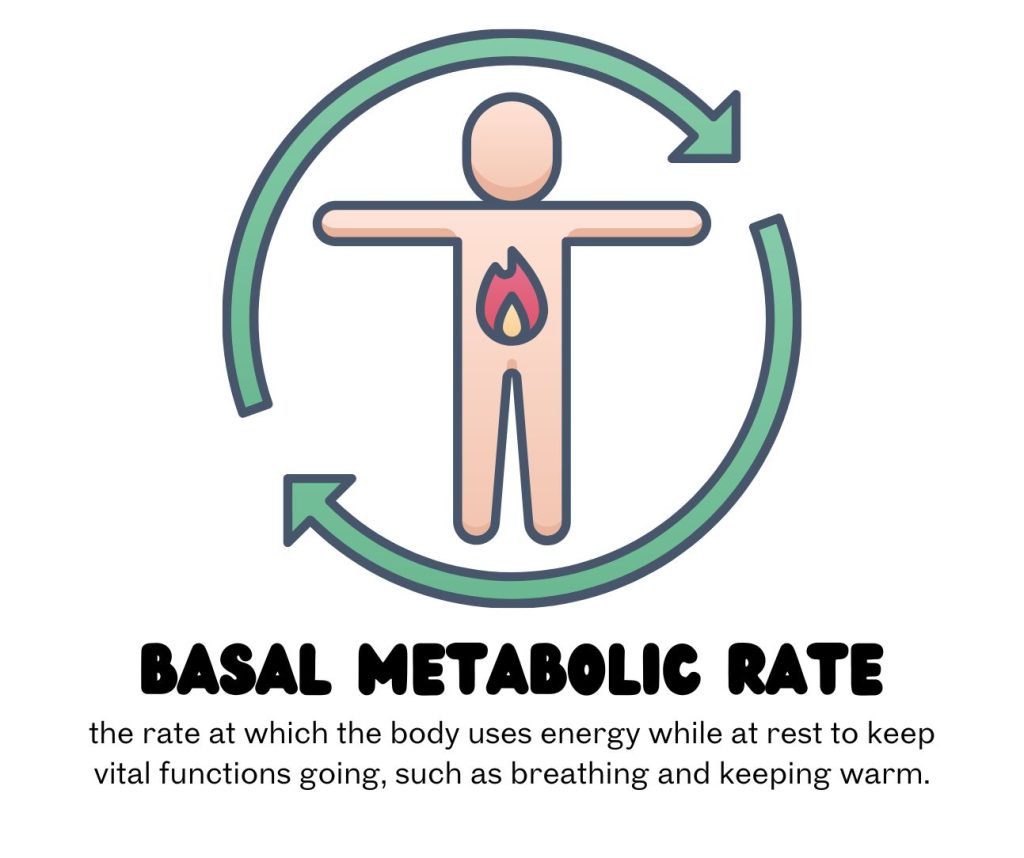
But if you get up and move at all, even just to walk to the kitchen or take a shower, congrats, you’re considered sedentary. And for someone of my size and weight, that means my body needs 1412 calories per day. And you can see that the amounts go up based on your exercise level.
Example of my current calorie recommendations from Calculator.net
Calorie Recommendations (example):
- Sedentary: 1,412 calories
- Moderate exercise (1-3 times/week): 1,618 calories
- Regular exercise (4-5 times/week): 1,724 calories
- Daily exercise or intense exercise (3-4 times/week): 1,824 calories
- Intense exercise (6-7 times/week): 2,030 calories
- Very intense exercise daily, or physical job: 2,236 calories
I’m probably in the “Exercise 1-3 times/week” category so that puts my calorie recommendations at 1618. Now, that’s how much my daily intake should be if I want to stay exactly as I am. I can more than guarantee that some days I’m under that and some days I’m well over that. So think of it as more of an average.
But, if you want to lose weight, guess what? You need to put yourself in a calorie deficit. You need to burn more calories than you take in. As much as I’ve tried to fight it with science and research, losing weight comes down to calories in < calories out.
I need to be eating LESS THAN 1618 calories per day to start losing weight. How much less? Well, that depends on how quickly you want to lose weight. But I probably wouldn’t go more than 200 less than your recommended amount. And you can also increase your exercise level.
Have you tried calorie counting before? What was your experience? I’d love to hear your stories—share them in the comments below!
Action: Calculate your BMR today using this calculator.
Now comes the next problem: I’M HUNGRY WHEN I EAT LESS! Girl, have you met me? This is my number one complaint about this approach. I don’t like to be hungry. So what can we do about it? We can focus on WHAT we eat.
Don’t roll your eyes yet. We’re talking about how to lose weight realistically and it takes time and many steps and a lot of self-motivation. A realistic approach to your eating is coming up next!
This is Part 1 of a four part series on losing weight and healthier living. I’m just like you – trying to take it all in and figure out what works. Join me for the rest of the series!
Part 2: Why Healthy Eating Matters More Than You Think: Calories and Macronutrients Explained
Part 3: How to Stay Motivated and Lose Weight: Tools That Really Help
Part 4: When Dieting Isn’t Enough: Tackling Hidden Barriers to Weight Loss
